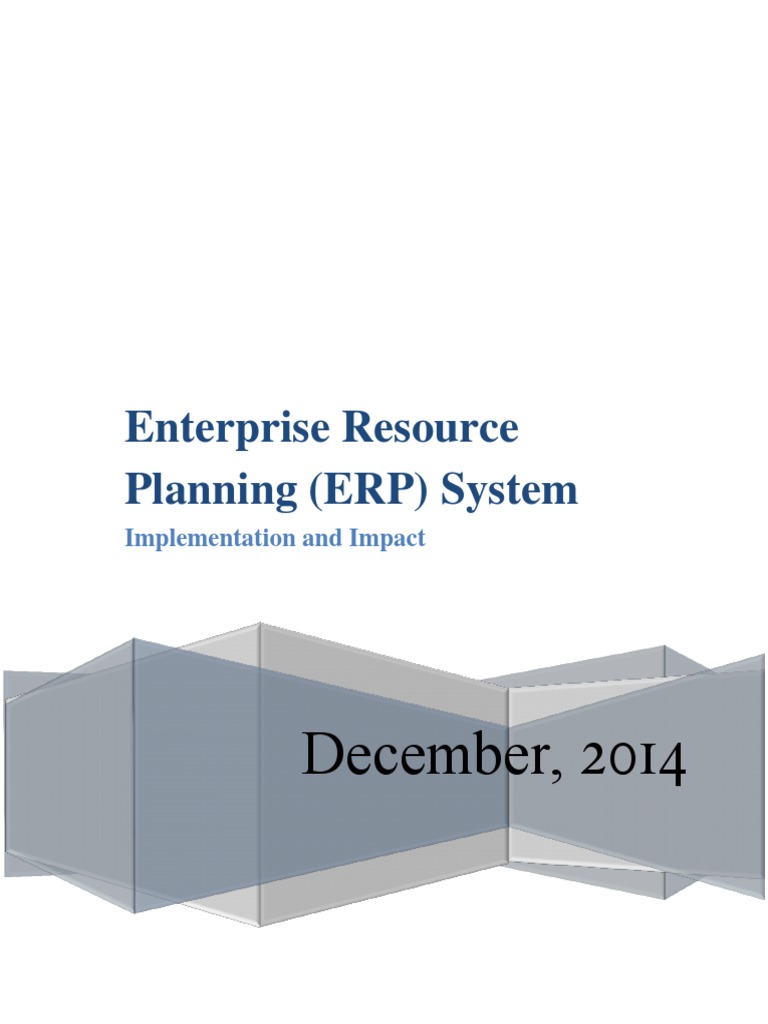Enterprise resource planning (erp) available at:...
I recently stumbled upon an interesting resource in my quest for knowledge and growth. It's a document titled "Enterprise Resource Planning-Term Paper.pdf | Enterprise Resource Planning". Intriguing, isn't it? This enterprise resource planning term paper delves deep into the intricacies of ERP systems and their impact on businesses across various industries. With a wealth of information and valuable insights, this document has become a valuable asset in my learning journey.
Unlocking the Power of Enterprise Resource Planning
As I perused through the pages of this enlightening document, I was struck by the significance of Enterprise Resource Planning (ERP) in today's fast-paced and dynamic business landscape. ERP systems serve as a centralized hub that integrates information and processes from various departments within an organization. This streamlines operations, enhances collaboration, and ultimately leads to improved business performance.
But what exactly is the core essence of an ERP system? Well, my dear reader, imagine a virtual brain that connects different departments like finance, human resources, and supply chain management, allowing seamless information flow and facilitating faster decision-making. That, in a nutshell, is the power of ERP.

The Impact of ERP on Businesses
Now, let's take a closer look at the tangible benefits that ERP systems bring to businesses. Firstly, they enhance operational efficiency by automating laborious and time-consuming tasks. By digitizing processes and reducing manual intervention, businesses can optimize their resources and focus on more critical aspects of their operations.
Furthermore, ERP systems provide real-time insights into various aspects of a business, such as sales, inventory, and customer relationship management. This data-driven approach empowers organizations to make informed decisions, identify market trends, and adapt their strategies accordingly.
In addition to these advantages, ERP systems also foster collaboration and enhance communication within an organization. By centralizing information, employees across different departments can efficiently work together, leading to increased productivity and a unified organizational culture.

Implementing ERP: Ingredients for Success
Implementing an ERP system is a strategic decision that requires careful planning and execution. Here are some key ingredients for a successful ERP implementation:
1. Strong Leadership:
Leadership plays a crucial role in driving change and ensuring the success of an ERP implementation. It is essential to have leaders who understand the strategic benefits of ERP and can effectively communicate its importance to the entire organization.
2. Cross-functional Collaboration:
A collaborative approach involving stakeholders from different departments is vital for a seamless ERP implementation. By involving end-users early in the process and addressing their concerns, organizations can foster a sense of ownership, ensuring the successful adoption of the new system.
3. Data Cleansing and Migration:
Before implementing an ERP system, it is essential to clean and migrate existing data accurately. This process ensures that the new system starts with accurate and reliable information, preventing data inconsistencies and errors down the line.
4. Robust Training and Support:
Organizations must invest in comprehensive training programs to equip employees with the necessary skills to utilize the ERP system effectively. Ongoing support and troubleshooting mechanisms are also critical to ensure a smooth transition and long-term success.
In conclusion, this incredible resource opened my eyes to the transformative power of ERP systems in modern businesses. With their ability to streamline operations, enhance collaboration, and drive informed decision-making, ERP systems have become integral to the success of organizations across industries. Let's embrace the opportunities that ERP presents and unlock the full potential of our businesses.